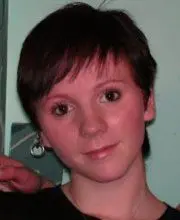
Diagnosed in 2004; passed away in 2008 at age 17
Jessica was diagnosed with a rare type of liver cancer (fibrolamellar hepatocelluar carcinoma) in December 2004. This was totally unexpected, Jess had never been ill in her life before, and then suddenly we were being told that she only had weeks to live. They told us that the only treatment would be a risky operation to remove a large amount of the liver as chemotherapy or radiotherapy appeared to do very little for this type of cancer.
Jess had surgery just days before Christmas, removing 80% of her liver, her gall bladder and also doing some reconstructive surgery. Jess was out of bed the next day, she was determined to get well again, nothing would ever stand in Jessica’s way, she was that sort of person who never felt sorry for herself and just got on with it.
After this Jess appeared to be clear of the disease, she had scans every couple of months. Then in March 2006 they found tumours in the lungs and in a lymph node next to the liver. We expected surgery again, but they told us that they could not operate as there were tumours in the lungs. So they decided to try chemotherapy as a last resort.
Jess started the chemo days later and had to stay in hospital each time for 5 days. She never complained and did not even cry when her hair came out. As soon as she got home from hospital she would be straight out at her boyfriend and with her friends, she never stopped in. In fact only close friends knew she was not well; she just acted like a normal teenager.
After a few months of chemo, the lungs cleared but the node by the liver had grown, they decided to operate. Again Jess was put through major surgery, but again determined she was out of bed the next day and even went to her Saturday job 6 days later, even though she could hardly move!
This operation was followed by 3 more rounds of high dose chemo. Jess was then scanned in September; the cancer had spread to her pelvis, diaphragm, by the heart and the lymph node by the liver again. This was devastating news, the chemo had done nothing. We were told that one of the surgeons would try to operate again at one last attempt to cure Jess or give her more time. This took place in November 2006.
Jess again recovered well and got on with life. But then we had the most devastating news, the cancer had been left in every site. Jess was told that no more could be done for her and we should now go home and make the most of the time we had left together. As you can imagine this is the worst news that anyone can hear, not something you expect to hear at just 16 years of age. Jess cried briefly for the first time since she had her illness. But the next day she sat one of her GCSE exams, determined that she had a future. She amazed everyone, she seemed to have such a strong mind and determination that she could deal with anything, even the cancer.
We then set about finding any other treatments or clinical trials as there was very little research as this cancer was so rare. We found a treatment abroad that used your own immune system to fight the cancer; this was called dendritic cell therapy. Jessica’s consultant told us that we had to wait for Jess to have this treatment, until there were enough tumour cells that could be used.
In the meantime Jess started oral chemo to try and hold back the disease. Then in September 2007 a new drug had been developed that seemed to have prolonged life in patients with another type of liver cancer. So we decided to try this, the drug was called nexavar and had the most awful side effects, Jess was constantly ill and could hardly eat.
By March 2008 it was decided that the tumours had all grown while she had been on this drug. So the next plan was to finally try the dendritic cell therapy, this produces no side effects, which in our eyes was a big plus. Jess had to stop taking the drug at least a month before she started the treatment.
Jess then took a turn for the worst, within hours she suddenly went into liver failure. One minute she was OK the next we were told that not only had Jess gone into liver and but also kidney failure, there now was really no hope left for Jess. The amount of drugs she had had to take for the last three and a half years had finally taken their toll. Sadly Jess passed away on the 10th May 2008 she was only 17, the very same week she was due to start her new treatment.
Because of Jessica’s strength, courage and constant bravery we want to help other people like Jess who suffer from rare types of liver cancer that are often very difficult to treat and also those who have got to a stage where conventional treatment is no longer working. As of August 2009 The Jessica Glynn fund for Research into Young People with Liver Cancer was set up within the School of Cancer Sciences at the University of Birmingham.
